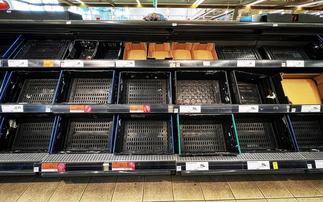
Engineering services company Worley to work with Green Lithium to deliver refinery that aims to produce 50,000 tonnes of battery-grade lithium a year
Engineering services company Worley has announced it has secured a contract to support Green Lithium's plans to build the UK's first large-scale merchant lithium refinery at a site in Teeside.
The new refinery is designed to supply low-carbon, battery-grade lithium chemicals to serve the growing European market for energy storage systems and electric vehicles (EVs) and in the process "facilitate decarbonisation objectives, green jobs, and long-term economic prosperity".
The refinery is set to have capacity to produce 50,000 tonnes of battery-grade lithium a year, which means it could meet up to six per cent of Europe's anticipated battery demand by 2030 providing enough of the material to produce one million EVs annually.
Ross McPherson, senior vice president for chemicals, fuels and resources for EMEA at Worley, said the project was "a step towards meeting demand and accelerating local lithium production".
"Current lithium refining capacity in Europe doesn't match the increasing demand for battery-grade lithium chemicals, which is projected to grow to 800,000 tonnes by 2030," he added.
Sean Sargent, chief executive at Green Lithium, said the new partnership marked an important step forward for the company's ambitious plans. "Green Lithium is enabling our planet's transition to sustainable energy by increasing the supply of low-carbon lithium chemicals to meet increased global demand," he added. "There is currently no lithium refining capability in Europe. Without localised supply, the automotive and battery manufacturing sectors in the UK and EU will fail. Critically, Green Lithium will use a world-leading, sustainable, and low-carbon refining process, which has an 80 percent lower carbon footprint than traditional refineries in existing markets."
Worley said it will provide engineering services for front-end loading of various supporting components for the plant's technology system. This will involve developing the balance of engineering, supporting critical planning, and permitting activities, general constructability, and developing philosophy documents for controls systems and automation. The refinery is expected to be fully operational by 2025.
McPherson said the project had the potential to sit at the heart of wider European lithium ecosystem. "Collaboration in Europe could accelerate sustainable lithium refining," he said. "This will help markets dependent on battery-grade lithium to secure reliable feedstock and build sustainable technology vital to the energy transition. These are important steps on the journey to delivering a more sustainable world."







